Kehui Tan
Towards Applying Powerful Large AI Models in Classroom Teaching: Opportunities, Challenges and Prospects
May 05, 2023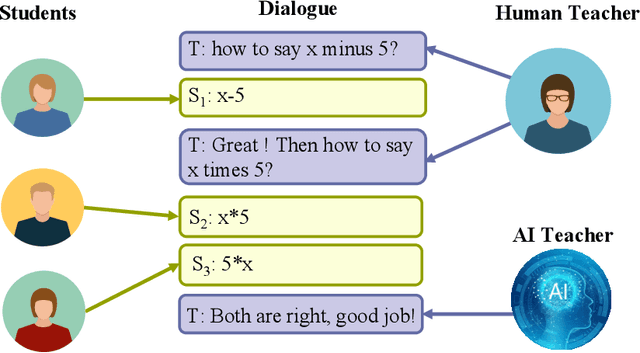
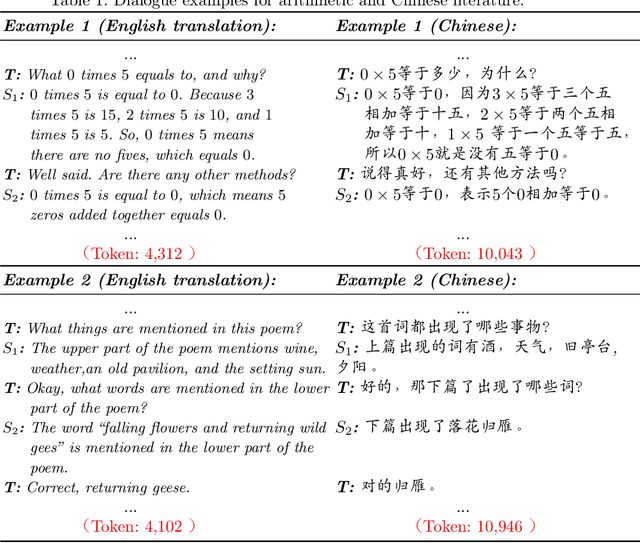
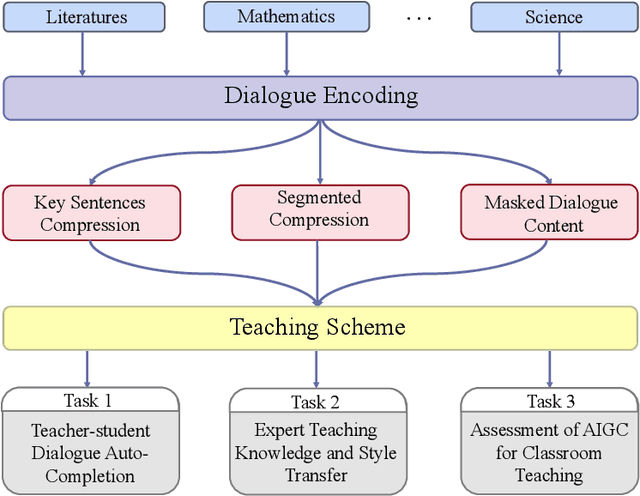
Abstract:This perspective paper proposes a series of interactive scenarios that utilize Artificial Intelligence (AI) to enhance classroom teaching, such as dialogue auto-completion, knowledge and style transfer, and assessment of AI-generated content. By leveraging recent developments in Large Language Models (LLMs), we explore the potential of AI to augment and enrich teacher-student dialogues and improve the quality of teaching. Our goal is to produce innovative and meaningful conversations between teachers and students, create standards for evaluation, and improve the efficacy of AI-for-Education initiatives. In Section 3, we discuss the challenges of utilizing existing LLMs to effectively complete the educated tasks and present a unified framework for addressing diverse education dataset, processing lengthy conversations, and condensing information to better accomplish more downstream tasks. In Section 4, we summarize the pivoting tasks including Teacher-Student Dialogue Auto-Completion, Expert Teaching Knowledge and Style Transfer, and Assessment of AI-Generated Content (AIGC), providing a clear path for future research. In Section 5, we also explore the use of external and adjustable LLMs to improve the generated content through human-in-the-loop supervision and reinforcement learning. Ultimately, this paper seeks to highlight the potential for AI to aid the field of education and promote its further exploration.
Carbon Price Forecasting with Quantile Regression and Feature Selection
May 05, 2023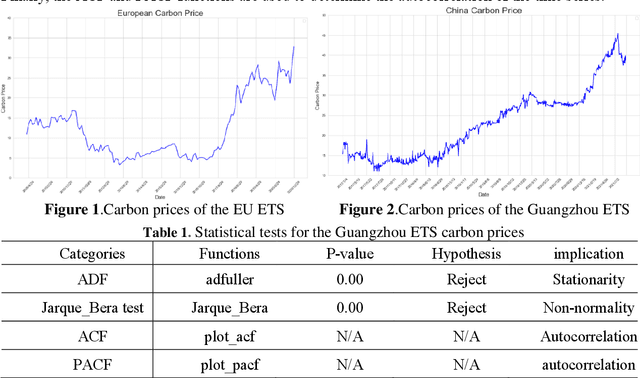
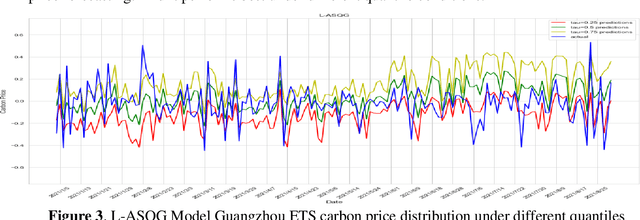
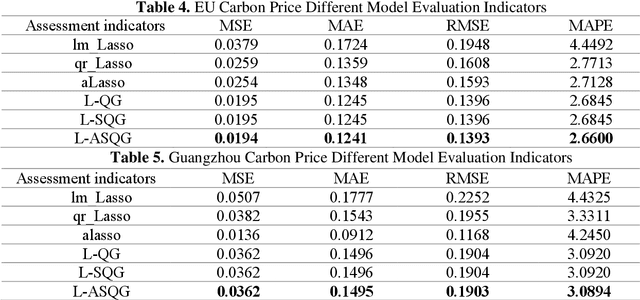
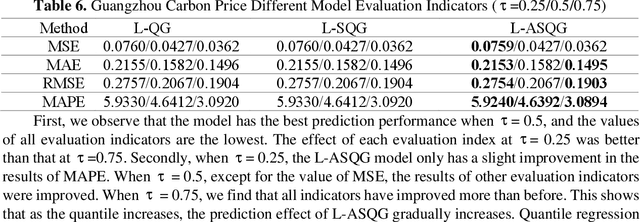
Abstract:Carbon futures has recently emerged as a novel financial asset in the trading markets such as the European Union and China. Monitoring the trend of the carbon price has become critical for both national policy-making as well as industrial manufacturing planning. However, various geopolitical, social, and economic factors can impose substantial influence on the carbon price. Due to its volatility and non-linearity, predicting accurate carbon prices is generally a difficult task. In this study, we propose to improve carbon price forecasting with several novel practices. First, we collect various influencing factors, including commodity prices, export volumes such as oil and natural gas, and prosperity indices. Then we select the most significant factors and disclose their optimal grouping for explainability. Finally, we use the Sparse Quantile Group Lasso and Adaptive Sparse Quantile Group Lasso for robust price predictions. We demonstrate through extensive experimental studies that our proposed methods outperform existing ones. Also, our quantile predictions provide a complete profile of future prices at different levels, which better describes the distributions of the carbon market.
 Add to Chrome
Add to Chrome Add to Firefox
Add to Firefox Add to Edge
Add to Edge